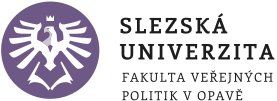Central European Papers 2016, 4(1):50-62 | DOI: 10.25142/cep.2016.005
The Influence of Ethnic Power Sharing Mechanisms on the Functioning of Parliaments in the Western Balkans
- Department of Constitutional Law, Faculty of Law, Károli Gáspár University of the Reformed Church, in Hungary, Alkotmányjogi Tanszék, Állam- és Jogtudományi Kar, Károli Gáspár Református Egyetem, Kálvin Square 9, 1091 Budapest, Hungary, szabo.zsolt@kre.hu
The Western Balkans countries, yet differ in religious and ethnic background, their present-day constitutional setup - at least on paper - has plenty of similarities. Each of them has a parliamentary form of government, a proportional voting system, and a rather ceremonial head of state. Most of these countries have also a predominantly complex ethnic landscape. After the armed ethnic conflicts of the 1990s and 2000s, the region set out along constitutional consolidation. As a price of the peace, various ethnic-based power-sharing methods were introduced in the constitutional systems of the countries. However, this paper argues that any political regime based on such instruments - one that gives preference to the interests of certain ethnic groups - can only be built to the detriment of a democratic state. As a result of ethnic way of thinking, the political landscape is dominated by (mostly ethnic oriented) parties and effective decision-making procedures are often missing or neglected. Parliamentary activities are often held on a minimum scale, being based on obligatory tasks, a proactive manner (scrutiny, control of the government) is missing.
Keywords: Western Balkans, ethnic power-sharing, ethnic conflicts, parliamentary procedure
Zveřejněno: 1. březen 2016 Zobrazit citaci
Reference
- Albania 2012 Progress Report, European Commision, document SWD (2012) 334 final, Brussels 2012, online: https://ec.europa.eu/neighbourhood-enlargement/sites/near/files/pdf/key_documents/2012/package/al_rapport_2012_en.pdf.
- BIEBER, Florian: Institutionalizing Ethnicity in the Western Balkans. Managing Change in Deeply Divided Societies, ECMI Working Paper No. 19, Flensburg 2004.
- BIEBER, Florian: Power Sharing and International Intervention: Overcoming the Post-Conflict Legacy in Bosnia and Herzegovina, in: Settling Self-determination Disputes: Complex Power-sharing in Theory and Practice, WELLER, Marc - METZGER, Barbara (eds.), Leiden - Boston 2008, 193-241.
 Přejít k původnímu zdroji...
Přejít k původnímu zdroji... - Bosnia and Herzegovina 2009 Progress Report, Commission of the European Communities, document SEC (2009) 1338, Brussels 2009, online: https://ec.europa.eu/neighbourhood-enlargement/sites/near/files/pdf/key_documents/2009/ba_rapport_2009_en.pdf.
- Bosnia and Herzegovina 2010 Progress Report, European Commission, document SEC (2010) 1331, Brussels 2010, online: https://ec.europa.eu/neighbourhood-enlargement/sites/near/files/pdf/key_documents/2010/package/ba_rapport_2010_en.pdf.
- JOGAN, Savin: Some Specific Elements Concerning the Legislative Process of the S. F. R. of Yugoslavia, in: The Law in the Making. A Comparative Survey, PIZZORUSSO, Alessandro (ed.), Berlin 1988, 332-341.
 Přejít k původnímu zdroji...
Přejít k původnímu zdroji... - MENDELSKI, Martin: Where does the European Union make a difference? Rule of law development in the Western Balkans and beyond, in: European Integration and Transformation in the Western Balkans. Europeanization or business as usual?, ELBASANI, Arolda (ed.), London 2013, 101-118.
- PENEV, Slavica (ed.): Improving the process of economic reform legislation in Western Balkan countries, OECD Investment Compact for South East Europe, Belgrade 2009.
- STOJANOVIĆ, Nenad - HODŽIĆ, Edin: Introduction: Ethnocracy at the Heart of Europe, in: Ethnopolitics, 14, 2015, 4, 382-389.
 Přejít k původnímu zdroji...
Přejít k původnímu zdroji... - SZABÓ, Zsolt: The Parliamentary Legislative Process in the Accession Countries of the Western Balkans, in: Jahrbuch für Ostrecht, Vol. 2, 2015, 375-418.
- SZABÓ, Zsolt: A Nyugat-Balkán parlamentjei, Budapest 2016.
Tento článek je publikován v režimu tzv. otevřeného přístupu k vědeckým informacím (Open Access), který je distribuován pod licencí Creative Commons Attribution 4.0 International License (CC BY 4.0), která umožňuje distribuci, reprodukci a změny, pokud je původní dílo řádně ocitováno. Není povolena distribuce, reprodukce nebo změna, která není v souladu s podmínkami této licence.



